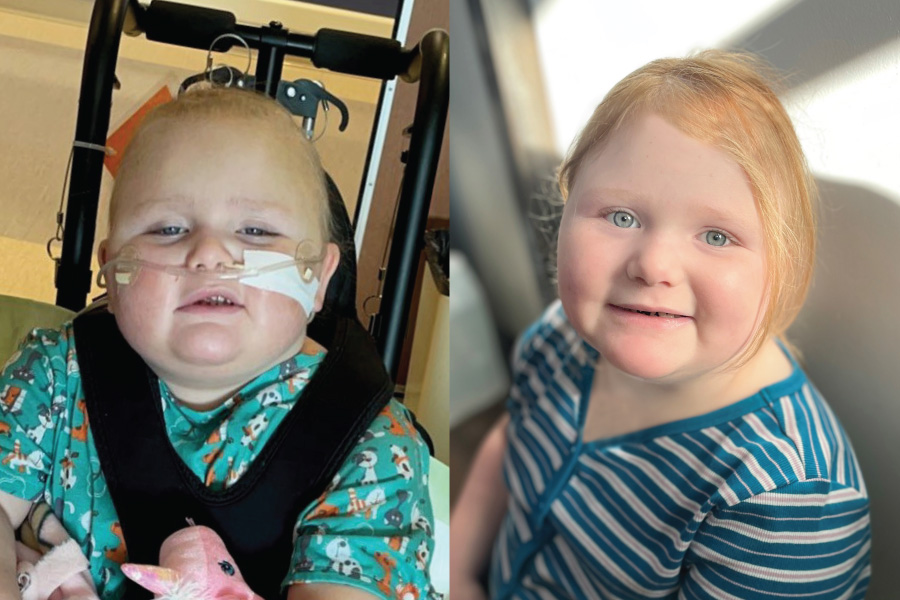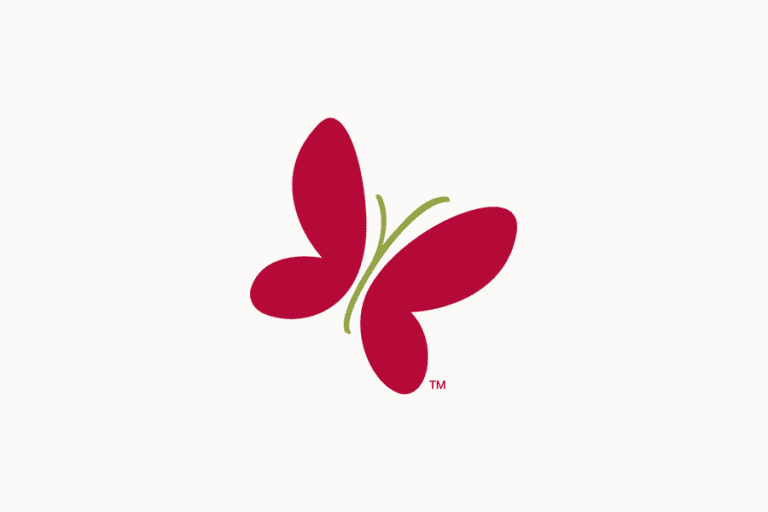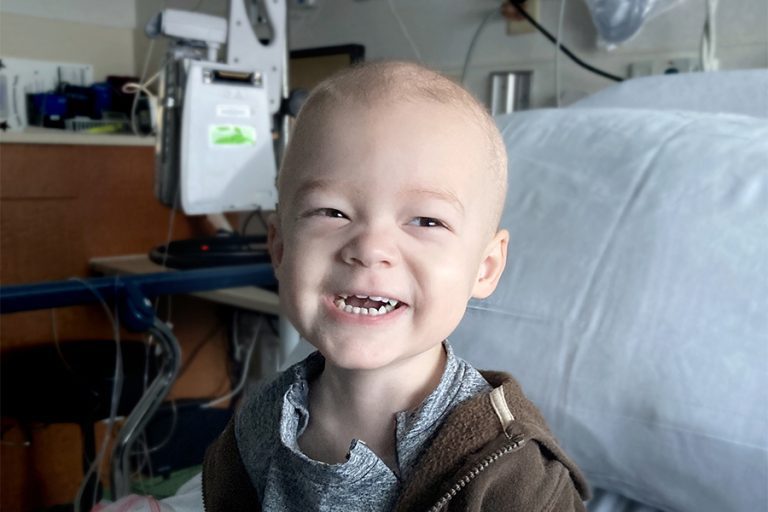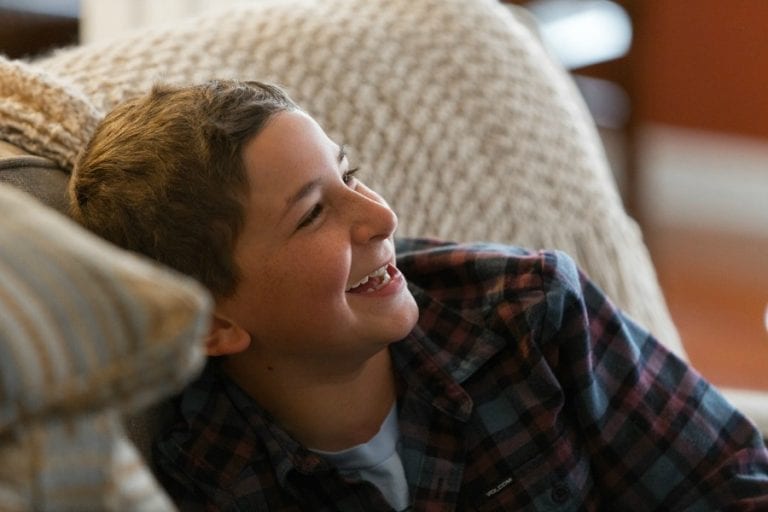When 5-year-old Jessly’s mom, Debbie, started noticing that her daughter wasn’t meeting standard developmental milestones as an infant, she had a feeling something wasn’t right. Though the possibility of a tumor briefly crossed her mind, Debbie never considered childhood cancer would become the family’s reality.
“We thought that this is something that happens to other people,” she said. “Not to us.”
Just before her first birthday, Jessly was diagnosed with anaplastic astrocytoma, a type of brain tumor. While the tumor and subsequent treatment has impacted Jessly’s short-term memory and caused her to lose the use of her right side, making it difficult for her to stand and walk independently, her positive attitude persists.
“She’s just a happy-go-lucky kid,” said Debbie. “She loves to sing and color. She loves school. She loves animals. She loves people. She’ll say hi to anybody.” Even when Jessly attends appointments, she’s excited to see the nurses and doctors – for her, she’s never known anything different.
Adjusting to childhood cancer has been a bit more challenging for the rest of the family. When Jessly was first diagnosed, Debbie tried to explain it to her oldest daughter, Mariska, the best she could: Jessly has an “owie” in her head. Now that she’s six, Mariska knows that Jessly’s “owie” is cancer and it’s why Jessly receives chemotherapy or needs extra help with certain things. In fact, Mariska likes being involved in Jessly’s care.
“She understands it better than any 6-year-old should,” said Debbie. But there are moments of struggle, too – like Mariska feeling like she’s not getting the same amount of attention as Jessly. Counseling has been a helpful tool for the family.
Support services, especially those offered by Momcology, have also been useful. With the constant care and accommodations Jessly requires as a child with disabilities, it’s been difficult for Debbie to find time to be a member of the childhood cancer community – but finding other moms who understand what she’s facing is an outlet she’s especially grateful for.
“There’s camaraderie between the moms and a willingness to share stories, to listen and to help out,” said Debbie. “It's amazing how many other moms say, ‘That's where I'm at’ or ‘I'm going through something similar.’ Because all of them are in that same boat.”
Peer connection has even given Debbie insight into different medications and new care approaches that she otherwise wouldn’t have considered. Jessly’s tumor hasn’t shown any growth since 2021, but the road to get there has been a long one riddled with surgery, radiation and chemotherapy – all based on treatment protocol developed in the 1980s.
“It just blew me away that she was on something from the ‘80s,” said Debbie. “Childhood cancer is becoming so common, but there’s a lack of funding [for new research]. Unfortunately, you have to go into doctor mode.”
Debbie feels her background as a chiropractor better prepared her for this sudden new role. From the very beginning of Jessly’s journey, Debbie’s trusted her “mama gut” and advocated for Jessly even when doctors dismissed her. She researched, reached out relentlessly and got second opinions from faraway hospitals. Because, as she told one doctor, “I’m Jessly’s mother, first and foremost. And don’t you forget it.”
By sharing Jessly’s story, Debbie hopes other parents are inspired to do the same for their own children facing cancer – and that she can spread some of the wisdom she’s been forced to pick up along the way.
“Sharing what we've been through may help another family and help fund certain [research],” said Debbie. “Maybe somebody else won’t have to go through what we’ve gone through. If I can help another mom get through it or give her suggestions, I want to be able to pay it forward.”
We must do better for kids like Jessly.
Cancer treatments for kids like Jessly haven't improved in decades - but we believe we can do better by funding research. Your gift supports researchers searching for better, safer treatments for kids fighting cancer.




